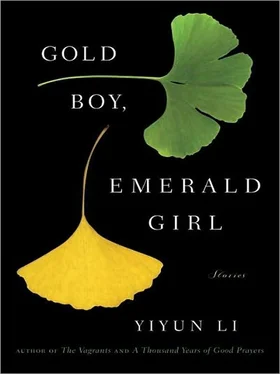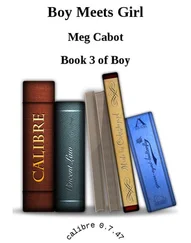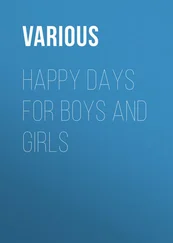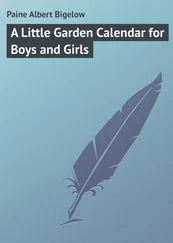NINE
IN EARLY APRIL we set out on a month-long march across Mount Dabie, hailed by Major Tang as the revolutionary cradle of our Communist nation. The expedition, planned to boost our Communist morale, was nevertheless a welcome alternative to our daily drills, and to the long hours we spent sitting in ideological seminars.
Never would I have a more memorable time than the month I spent in the mountains, though I wonder, when I say this, if it appears so only because it is our nature to make a heaven out of places to which we can never return. But if I close my eyes and hum the songs that we sang on the road—“The Red Azaleas,” “The Warsaw Marching Song,” “The Song of the Communist Youth,” “Under the Shining North Star”—I can see us again, lining up on the first day at the drill grounds, waiting for the lorries to arrive and transport us from the camp to an army depot in the mountains. Don’t we look like giant snails bearing our homes on our backs? I remember Ping’s comment — each of us carried, bundled tightly in a plastic sheet, a bedroll and a set of uniforms for changing, a heavy raincoat, two pairs of shoes, a satchel with towels, a cup, a toothbrush and toothpaste, and a canteen, all arranged as compactly as possible so the items would not become more of a burden than they were. Turtles, Nan corrected Ping, and went on to tell a joke about turtles, though hard as I try now, I can remember only the laughter around her after she finished the joke.
We were jostled in the covered lorries, for hours it seemed, on the winding mountain road, and our excitement was slowly replaced by exhaustion. On a particularly uneven stretch of road, Nan stood up from where she was sitting on her bedroll, and worked loose the rope that bound the two roof tarps together. Lieutenant Wei, who was sitting at the other end, ordered her to sit down. Nan looked out the gap for a long moment and then retied the tarps as best she could. “If the lorry missed a turn, we would die together,” she said to no one in particular, and began to sing in English: If you miss the train I’m on, you will know that I am gone. You can hear the whistle blow a hundred miles .
Her voice was more sorrowful than ever, though there was a smile on her face. Lieutenant Wei seemed to be as stricken as we were, even though she could not understand what Nan was singing. When the song ended, we listened to the tree branches scratching the tarp and pebbles bumping off the wheels of the lorry. I wondered why sadness seemed to roll off Nan as raindrops roll off a lotus leaf, without leaving any trace; I wondered how one could acquire as unaffected a soul as she had.
We stayed in the army depot that night, the last time during the journey we would be sleeping in bunk beds — later we would sleep on the unpaved dirt floors of village schools, and in the meeting halls of People’s Communes from the fifties that were no longer in use, and in the field, our whole squad squeezed together in a small patch of space. I would soon learn to let my defenses down, but on that first night, when the mountain air chilled our bones and made our teeth chatter, I again refused to share a bed with a squad mate.
At three o’clock in the morning, I was shaken awake for my night-watch duty. I wrapped myself in a quilt and went into the yard, and took my position under the brick wall. The night was clear and cold, the stars so close that one could almost reach them by raising a hand. An owl hooted and was answered by another, and I remembered the story — one of the few my father had told me — about the owls that carried the message of death: They would spend each night counting the hairs in a person’s eyebrows, and when they finished counting at daybreak, that person would die. When the owl hooted again, I shivered and rubbed my eyebrows, as my father had done for me when I was little, so the owls cannot count your eyebrows, he had said, his gentle touch on my eyebrows a comfort.
Jie, the other girl on night duty, shone her flashlight at me from where she was sitting at the foot of a tree. I clicked on my flashlight and waved back. A minute later she trotted over. “Are you cold?” she said.
“Yes.”
“Are you afraid?”
“No.”
“Are you lonely?”
Jie arranged her quilt around her and said she would sit with me, and I did not remind her that, if we were discovered, we would both get into trouble. We sat back to back, leaning onto each other, both huddled with our machine guns, though we had not been supplied with ammunition. Jie had behaved casually around me since the winter, and I wondered if it was natural for friendship to be formed out of shared secrets; she was the closest friend I had ever had.
“If some bad guys came, we could do nothing,” Jie said.
“We’d whistle and then run,” I said, searching my quilt for the whistle I had been supplied along with the gun.
Jie laughed lightly and asked me if I realized the irony of our hugging guns that would not shoot. I don’t understand, I said, though I did; Jie was fond of telling me off-color jokes, as if my reading Lady Chatterley’s Lover for her had qualified me to hear all the secrets she said she could not share with the others.
“Have you ever been in love?” Jie said.
“No,” I said.
“Sometimes you miss someone so much that all of a sudden you can’t remember how he looks or sounds,” she said, and asked if I had ever experienced that.
I thought about Nini’s father, whose face I could call up if I wanted to, though I rarely did; I thought about Professor Shan, whose voice came more easily to me than her face.
“My boyfriend and I — we did it in the winter.”
“Like they did in the novel?” I asked.
Jie told me not to believe anything I’d read in that book. “You think you will remember every moment, every detail, but the truth is, I can’t remember much about it. Can’t even remember how long we were at it.”
How could one forget such things? I could recall many details of the afternoons in Professor Shan’s flat, the last sunshine of the day slanting in from the window, her fingers slowly turning the pages, a cricket chirping from under one of the old trunks; I had not forgotten a single word that Nini’s father had said to me on the night of his divorce.
“Let me ask you — if two people love each other, doesn’t it mean that every minute of one’s life matters to the other?”
I had never loved someone, I said, so I would not know. Jie said that in that case, she was asking for directions from a blind person. Her boyfriend was not interested in her life in the army; he saw it as a nuisance that kept them apart for a year. “But won’t you remember tonight fifty years from now?” Jie asked. “I wish he’d remember these things with me. Two heads are better than one.”
“In bed,” I said. Jie laughed and said she did not know I could be naughty. It was a pity that I was in his place, I said, and Jie told me not to make fun of her. I was sad that she did not understand I meant it: She and I would drift apart once we left the army; we were not close, not even real friends. I would not be the one to carry the memory of tonight for her.
I wished her boyfriend were here; I wished too that someone other than Jie were next to me, someone who one day would share the memory of the mountains with me. The wish, illogical as it was, persisted into the following days when we marched in the mountains. It was sunny in those days, the sky blue, red azaleas wild on the cliffs. If one looked up, one could see the long line of green figures ahead, disappearing and then reappearing along with the winding road, and when one quieted her steps momentarily, the singing of the companies behind would drift uphill. In the valleys, there were creeks, and sometimes a river, and there was always a lone fisherman sitting in the shade of his wide-brimmed straw hat, and a long-legged white egret nearby, neither disturbing the other. When the mountains were replaced by rolling hills we knew that we were approaching a village: First came the fields of purple milk vetch that unfolded like giant rugs, white and yellow butterflies busying themselves in and out of the lavender blossoms; closer to the village, there were rice paddies, and water buffaloes with bare-footed boys sitting astride them; once in a while a sow would spread herself across the narrow road that led into the village, a litter of piglets pushing against her. Small children chased after us, calling us Auntie Soldiers and begging for candies. Even the youngest ones knew not to eat them right away — they gingerly licked the candies and then wrapped them up so they would last days, perhaps even weeks. Feeling guiltily privileged compared to the children, we competed to offer them treats, but sooner or later we would leave them behind and march on until dusk fell, when smoke could be seen rising from the field kitchen in the valley.
Читать дальше
Конец ознакомительного отрывка
Купить книгу












